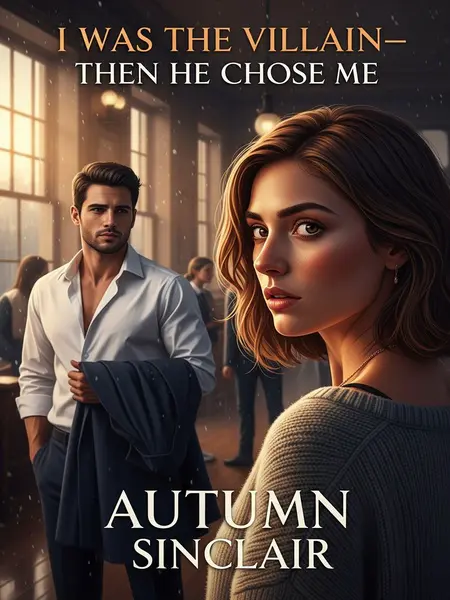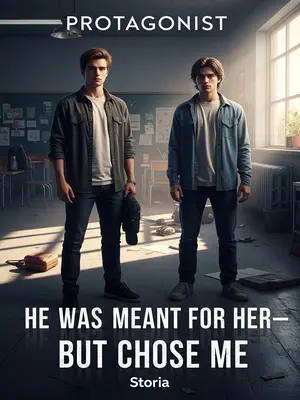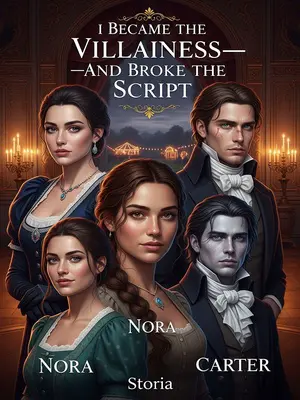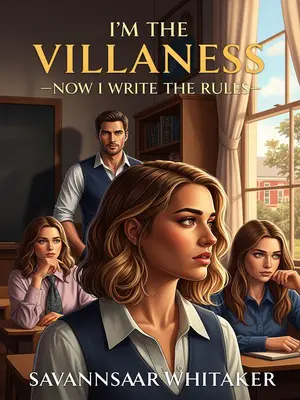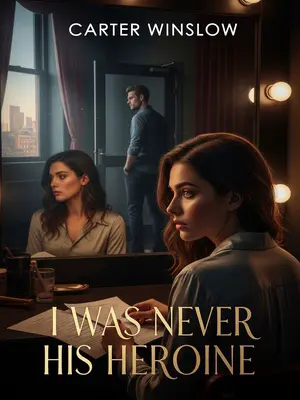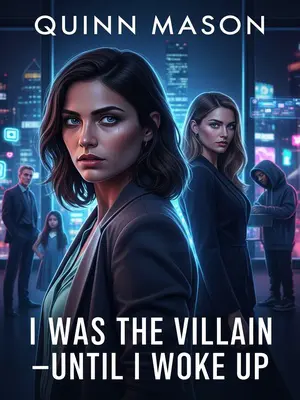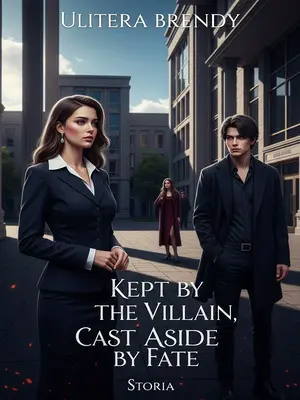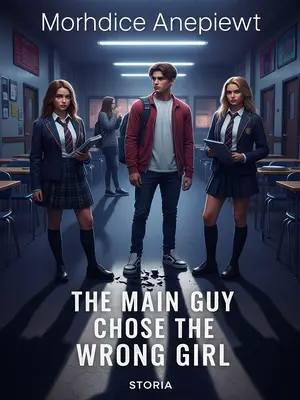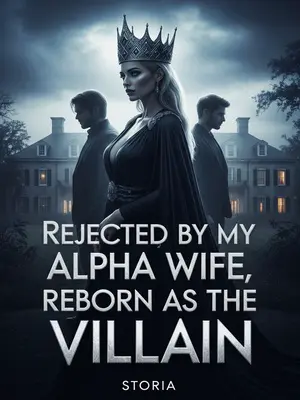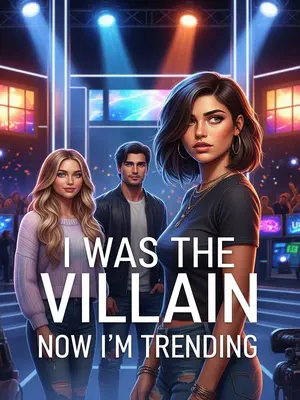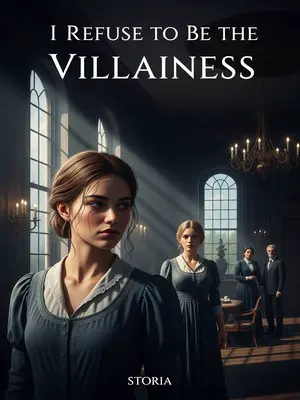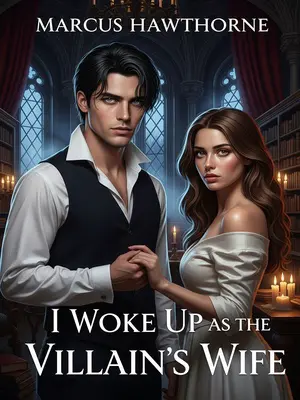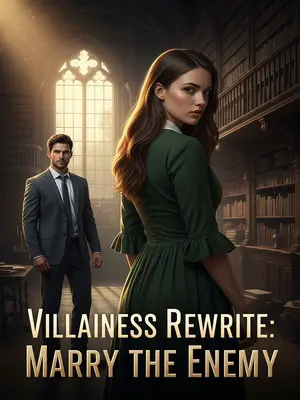Chapter 4: The Trap Is Set
Back home, I had my bags packed, car ready, and boat reserved, planning to leave that night.
I moved through the house like a ghost, checking every lock, every suitcase. My heart pounded with anticipation and dread.
But when I opened the gate, Julian was standing in the wind.
He looked like he’d been waiting for hours, coat pulled tight, hair whipped by the breeze. I steeled myself, ready for a showdown.
I lifted my skirt and walked down to face him. “I’m going to Savannah.”
I kept my voice steady, refusing to let him see how scared I was. I’d made up my mind, and nothing he said would change it.
He opened his mouth but said nothing. I didn’t care to guess what he was thinking, so I tried to get in the car, but he blocked me.
He moved fast, stepping in front of the door. I glared at him, daring him to stop me.
With that deep, determined look.
His eyes were darker than I’d ever seen them, full of something fierce and unyielding. I’d seen that look before—when he was fighting for his family, for his future. Now, it was turned on me.
I’d seen it before, in his study, at city hall, at meetings—always cold and clear. But with me, he was usually smiling and gentle, wrapping me in warmth.
This was different. The warmth was gone, replaced by steel. I felt a chill run through me.
It’s all changed now.
I barely recognized him. The boy I loved was gone, replaced by a man I didn’t understand.
“Julian, are you going to stop me?”
I waited, heart pounding. The silence stretched between us, heavy and unbreakable.
He didn’t answer, just turned away and signaled for the staff to take my bags back inside.
He didn’t have to say a word. His actions spoke loud enough.
I grabbed his sleeve, made him look at me, my voice choked, eyes brimming with tears.
I couldn’t let him win—not this time. I held on tight, refusing to let go.
“I miss my family. I want to go to Savannah.”
My voice was barely more than a whisper, but it was all I had left.
He sighed deeply, as if forced to make a hard choice.
For a moment, I thought he’d give in. But then his face hardened, and I knew it was hopeless.
“Autumn, stay.”
His voice was low, commanding. It wasn’t a plea—it was an order. I felt the last bit of fight drain out of me.
Not a request, but a command.
I hated him for it, even as part of me wanted to obey.
To me, he was the crueler one.
He had all the power, and he knew it. I was just a pawn in his game.
What was he so helpless about?
I searched his face for answers, but found nothing. He was a closed book, and I’d lost the key.
Was it the story itself, keeping me—the villain—as a prop for the main couple’s love?
Maybe we were both trapped, playing roles we didn’t choose. But that didn’t make it hurt any less.
Suddenly, I found it funny.
I laughed, a sharp, bitter sound. If this was fate, it had a cruel sense of humor.
All I know is, he gathered all the staff and announced:
“From today on, no one is allowed to let Miss Autumn leave the house.”
His voice echoed through the halls, final and unyielding. The staff nodded, afraid to meet my eyes. I felt the walls close in.
For someone who loves to go out every day, being stuck at home is torture.
I paced the halls like a caged animal, plotting my escape. Every window, every door, every secret passage—nothing worked. I was trapped.
I tried everything.
Of course, I tried everything—climbing walls, sneaking out, disguises—but nothing worked.
I even tried dressing as the mailman, but the staff saw right through me. I considered bribing the gardener, but he just shook his head, apologetic.
But I spent money every day, ordering all kinds of snacks and takeout. Normally, I love good food, but even with it all in front of me, I wasn’t happy.
I surrounded myself with treats—beignets, fried chicken, peach cobbler—but nothing tasted right. The food was just a distraction, a way to fill the emptiness.
Until one day, I saw Jackson Lee in the house, swinging a folding fan, walking in like he owned the place. “Julian says you’re too sick to join this year’s autumn hunt, so I came to check on you.”
He sauntered in, fan snapping open, a mischievous grin on his face. He looked like he’d just stepped out of a Mark Twain novel. Of course he made an entrance. I almost laughed, despite myself.
I ignored his teasing, grabbed his arm like a lifeline.
I clung to him, desperate for a way out. He raised an eyebrow, but didn’t pull away.
“I’m fine, the one who’s dying is him. Mayor, he locked up your county princess. You should do something.”
I put on my best pout, hoping to win him over. Jackson loved a good rebellion.
“I’m definitely going to the autumn hunt. Not only that, I want to go out right now.”
I stomped my foot. No way was I backing down.
Then I looked at him expectantly, refusing to let go unless he took me out.
He sighed, shaking his head, but I saw the smile tugging at his lips.
Jackson tried to escape but noticed his sleeve was caught, sighed, and gave in.
He knew I wouldn’t let up. With a resigned shrug, he agreed.
Hmm... this is your family’s business, not sure I should meddle.
He pretended to weigh his options, but I knew he’d cave. He always did.
I closed my eyes and steeled myself. “Forget the lost-and-found treasure, just get me out.”
I was willing to trade anything for a little freedom. Jackson grinned, sensing victory.
He agreed right away. “Deal!”
He winked, and I felt hope spark in my chest.
So he smuggled me out. It was so easy that even after we were two blocks away, I was still in shock.
We slipped out the back, dodging the staff, laughing like kids on the run. The fresh air tasted like freedom. Finally.
Until he took me onto a party boat, with music playing, people chatting and reciting poetry.
The boat was packed—music blaring, people laughing, the scent of barbecue drifting on the breeze. I almost forgot why I’d been so miserable.
Turns out, he just wanted to go to the poetry slam—I was his excuse.
He shrugged. “Needed a plus-one. Figured you could use the fresh air.” I rolled my eyes, but I was grateful.
No matter. I love crowds anyway, and I hadn’t been out in ages.
I melted into the noise, letting the chatter wash over me. For a little while, I felt like myself again.
But after a few steps, I saw a scene that made my blood boil.
There they were—Julian and Lena, laughing together by the railing, the city lights reflecting off the water. My heart twisted.
Julian and Lena, laughing together, Lena leaning on the railing with a shy, blushing face, covering her lips as if being teased.
She looked up at him, eyes shining, cheeks flushed. He leaned in, whispering something that made her giggle. I felt invisible, unwanted.
Figures—you always run into the one person you least want to see.
Of all the places in town, of course they’d be here. I considered jumping overboard, just to avoid the scene.
I was about to turn away, but Jackson started teasing me again.
He nudged me, a wicked grin on his face. “You see that? Looks like you’ve got competition.”
“These days, everyone in Maple Heights knows Julian and Lena are close. You might have a new sister-in-law.”
He waggled his eyebrows, clearly enjoying my discomfort. I shot him a look that could curdle milk.
If looks could kill, Jackson would be dead a hundred times over.
He just laughed, unbothered. I made a mental note to get him back later.
“Mayor, you might want to stop talking before I...”
I made a throat-slitting gesture, earning a mock gasp from Jackson.
We arrived just as the poetry results were being announced.
The crowd hushed, the announcer’s voice ringing out over the speakers. I barely listened, too busy watching Julian and Lena.
No surprise—the winner was the heroine.
Of course. The system wouldn’t have it any other way. Lena accepted her prize with a gracious smile, the crowd eating it up.
Her system’s stash of classic poems and songs is enough to win any contest.
She recited a poem I’d never heard, her voice clear and strong. The judges swooned, the audience applauded. It was all so predictable, it hurt.
I wasn’t interested.
I slipped away, searching for a quiet spot to breathe. The party felt too loud, too bright.
I preferred the cool breeze by the lake, quietly at the back of the boat, not sure where to go from here.
I leaned on the railing, letting the wind tangle my hair. The city lights shimmered on the water, and for a moment, I let myself hope for something better.
My mind started buzzing again.
That familiar static, like a warning siren. Not again. I braced myself for whatever came next.
[Lena Morales used the “Falling into Water” item on you]
Before I could react, a sharp tug on my arm sent me over the edge. The world spun, and then I hit the water—cold, shocking, relentless.
Suddenly, I was yanked and fell into the lake with a splash.
The water closed over my head, stealing my breath. I kicked, clawed, desperate for air. The surface felt impossibly far away. Panic set in.
The autumn water was freezing, bone-chilling.
It stabbed through my skin, straight to the bone. I gasped, choking, struggling to stay afloat.
Winning the poetry slam wasn’t enough—she wanted me gone.
I realized, with a sick twist, that Lena would stop at nothing. The story was hers, and I was just an obstacle to be removed.
But everyone was up front, laughing, my weak cries for help lost in the noise—no one heard.
I screamed, but the music drowned me out. I was alone, invisible, just like the story wanted.
I thought I was going to die.
My strength faded. The water pulled me down. I closed my eyes, ready to let go.
But my last thought was still Julian, and the happiest seven years I’d had. So sad.
I saw his face, remembered the warmth of his smile, the sound of his laugh. If this was the end, at least I’d loved him once.
My youth, truly and clearly, died in the year I loved him most.
When I woke up, I was back at the Carter house.
The sheets were cool, the room dim. I blinked, disoriented, unsure if I was alive or dreaming.
No one talked about my fall into the water.
The staff avoided my eyes, moving quietly around me. I knew better than to ask questions. In Maple Heights, silence was its own kind of answer.
After a few days, I recovered.
I regained my strength, but the ache in my chest lingered. I felt different—older, harder, less willing to play along.
One day, the staff said Julian ordered them to take me to City Hall to serve as an aide.
I bristled at the news. City Hall was the last place I wanted to be—full of rules, routines, and the ever-watchful eyes of the mayor. Great. Just what I needed.
The destined plot was coming for me.
I could feel it, like a storm gathering on the horizon. No matter how hard I ran, the story always found me.
Who in Maple Heights doesn’t know I love freedom most? Yet he was cold enough to send me to City Hall to learn all the rules, face the old witch mayor’s special attention.
It was the ultimate punishment—trading my freedom for protocol, my laughter for silence. I wanted to scream.
I made a scene, demanding to see him.
I stormed through the halls, slamming doors. No way was I going quietly. The staff tried to calm me, but I wouldn’t listen.
He came, but his tone was cold, every sentence blaming me for being reckless.
He stood in the doorway, arms crossed, eyes hard. Every word was a rebuke, a reminder of how far we’d drifted apart.
“I wanted you to stay home, but you insisted on making trouble. Since the house can’t keep you in, go to City Hall and learn some discipline.”
His words stung, but I refused to let him see me cry. I lifted my chin, daring him to say more.
I was furious, glaring at him.
My hands shook, but I held my ground. I wouldn’t let him win—not this time.
“You shouldn’t have locked me up, and I was the one pushed into the water. Lena was the one who set me up.”
I spat the words out, desperate for him to believe me. But his face didn’t change.
Julian froze, seemed to think for a long time, then sneered.
He looked away, lips twisted in a bitter smile. I felt my heart break all over again.
“She was up front getting her prize. How could she have been at the back of the boat to push you? Autumn, stop making trouble.”
His words were final, unyielding. I realized, with a sick certainty, that nothing I said would change his mind.
I wanted to argue but had no proof. No one would believe me—just think I was being difficult.
I swallowed my anger, blinking back tears. I was alone, again, with no one to fight for me.
My anger fizzled out.
It left me hollow, exhausted. I turned away, refusing to let him see me break.
Seeing this, he sighed and turned to leave.
He didn’t look back. The door closed behind him, and I was left with nothing but silence.
“Who saved me?”
I called after him, voice trembling. I needed to know, needed something to hold onto.
He paused.
For a moment, I thought he might turn around. But he just stood there, silent.
“The mayor.”
The word hung in the air, heavy and final. I nodded, not trusting myself to speak.
I entered City Hall.
The building was cold, the marble floors echoing with every step. I felt like a ghost, drifting through someone else’s life.
Sure enough, the mayor missed me most.
Jackson greeted me with a wink, but even he couldn’t lighten the mood. The staff eyed me warily, unsure what to make of the “county princess.”
Eager to load me up with every rule and regulation.
The old guard loved nothing more than a good lecture. I sat through hours of protocol, my knees aching, my mind numb.
So I was forced to learn protocol in the council chamber, my knees numb, the rules droning in one ear and out the other.
I memorized the list—who to greet, how to curtsy, when to smile. It was torture, but I refused to give them the satisfaction of seeing me break.
It was so hypnotic.
I counted the ceiling tiles, doodled in the margins of my notes, anything to stay awake.
Just as I was about to nod off, help arrived.
The door banged open, and Jackson swept in, a whirlwind of energy and charm. I nearly cried with relief.
The clerk’s sharp cry—“Mayor’s here!”—snapped me awake.
I sat up straight, rubbing my eyes. Jackson winked at me, his presence a lifeline.
“Ma’am, I brought Autumn here to help with the archives, no need to trouble her with the rules. I’ll handle it.”
He spoke with authority, his voice cutting through the room. The old guard grumbled, but didn’t argue.
“If the general’s daughter faints, it’ll look bad for you.”
He had a way of making even the sternest councilwoman back down. I tried not to grin.
I nodded like crazy.
Anything to escape another hour of etiquette lessons. I shot Jackson a grateful look.
He probably found me annoying and waved me off.
She barely glanced at me, already moving on to her next victim. I slipped out, heart pounding with relief.
“Since the mayor has other plans, that’s all for today.”
I didn’t wait for a second invitation. I bolted for the door, Jackson close behind.
Afterward, Jackson, for once, didn’t tease me and even showed concern.
He handed me a bottle of water, his brow furrowed. “You okay?” I nodded, too tired to joke.
“Does it hurt?”
He gestured to my knees, concern in his eyes. I smiled, touched by his kindness.
I pointed to my knees, a little proud. “I wore knee pads.”
He laughed, shaking his head. “Always prepared, huh?” I grinned, feeling lighter than I had in days.
We grinned at each other.
For a moment, it felt like old times—just two kids, outsmarting the world.
